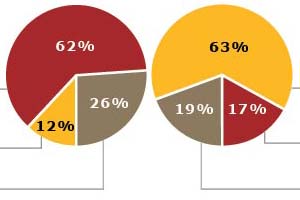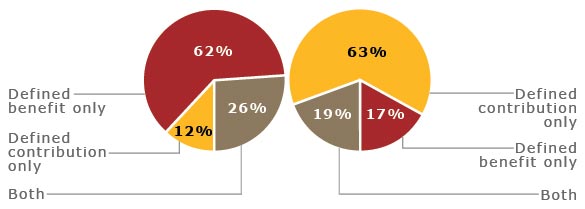
since 1975, companies have gone from contributing more than 90 percent of their workers’ retirement funds to pitching in less than half. How? Mostly by switching from “defined benefit” pension plans to 401(k) and similar “defined contribution” accounts. In such a shift, employees typically lose about one-third of their benefits. Some other key differences:
Pension vs 401(k)
Company assumes risk of investing
In addition to wages
Benefit depends on your salary, work history
Guaranteed by federal government
Employer pays fees and expenses
Company must contribute unless plan shut down
Employee assumes risk
Taken out of wages
Benefit depends on stock market
No guarantee
Employee pays
Company can suspend contributions
at will
1983 vs 2007
Percentage of workers with retirement plans who had:

















